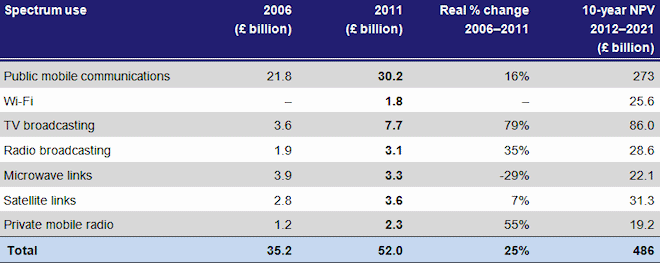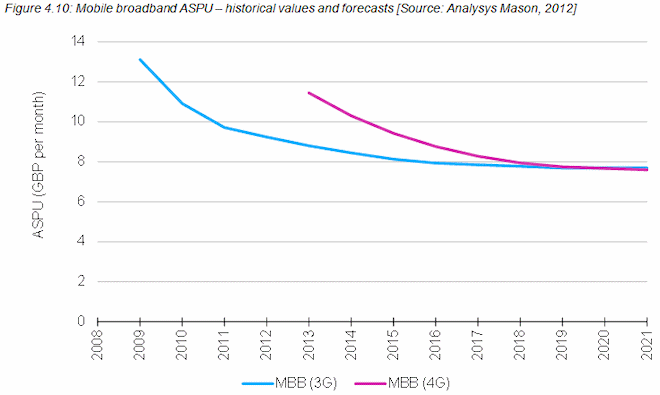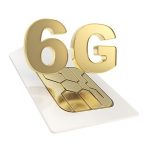Radio Spectrum Worth £52bn to the UK But Mobile Broadband to Get Cheaper
A new Government commissioned report from Analysys Mason has revealed that the total radio spectrum (e.g. wifi, digital tv, 3G etc.) market was worth £52 billion a year to the UK economy in 2011 (up 25% in real terms since 2006) and rising. But Mobile Broadband is going to get cheaper.
The report reveals that public mobile services account for 58% of this value (£30.2 billion), with broadcasting (TV and Radio) responsible for another 20%. The rest is split fairly evenly between wifi (lowest value of £1.8bn), microwave, satellite and private mobile services. Interestingly microwave links, which are fast being replaced by modern fixed line connectivity (e.g. fibre optic), appears to be in decline.
Advertisement

The UK Government, similar to Europe, has set a target to release 500MHz of spectrum for commercial use by 2020 (e.g. 4G spectrum auction of the 800MHz and 2.6GHz bands). Indeed most government’s now see it as vital to ensure that sufficient spectrum is available to meet future requirements, especially in terms of mobile broadband (4G) and wireless networking (wifi etc.) solutions.
Philip Bates, Senior Manager at Analysys Mason, said:
“Ongoing market, technical and commercial trends all point towards continued growth in the public mobile sector, suggesting its importance to the UK economy will continue to increase.
The licence-exempt sector (including Wi-Fi, RFID and M2M (Machine-to-Machine)) applications and many more uses of short-range devices) is becoming increasingly diverse, and innovators are emerging in the UK offering new ways to deliver licence-exempt services.”
However the majority of the revenue in the mobile services value chain is earned by the mobile operators themselves from subscriptions, calls and data (internet) charges. In 2011 the four UK operators (EE, Vodafone, O2 and Three UK) collectively earned £19.0 billion. Overall, revenue in 2011 was down around 1% compared to 2010, although the total number of subscriptions grew by around 1%.
But the Average Spend Per User (ASPU) is still falling, which is “almost certainly” due to the competitive nature of the UK mobile market. In particular Mobile Broadband (3G and 4G) services are getting even cheaper and the report suggests that this trend will continue, which is despite EE upping its prices for the country’s first national 4G service last month.

Separately the Wireless Broadband Alliance (WBA) has revealed that wifi hotspot connections are now led by smartphones (40%), followed closely by laptops (39%) and then tablets (17%) which have seen rapid growth since their recent emergence.
Advertisement
The survey also highlights the potential of WiFi roaming with 75% of operator respondents claiming under 10% of their overall user base connects to hotspots while travelling (e.g. on holiday); though technically wifi hotspot users are always travelling or roaming, if you prefer.
Impact of Radio Spectrum on the UK Economy (MS Word Document)
http://www.culture.gov.uk/images/publications/Impact_of_radio_spectrum..doc
Mark is a professional technology writer, IT consultant and computer engineer from Dorset (England), he also founded ISPreview in 1999 and enjoys analysing the latest telecoms and broadband developments. Find me on X (Twitter), Mastodon, Facebook, BlueSky, Threads.net and Linkedin.
« Microsoft and Google Plan UK White Space Wireless Broadband Network
















































Comments are closed